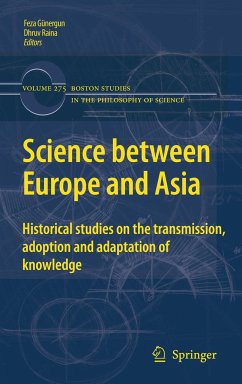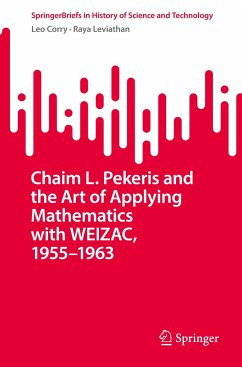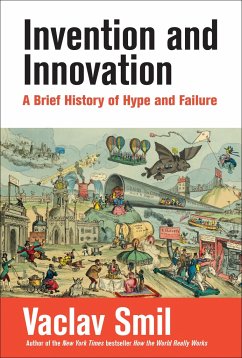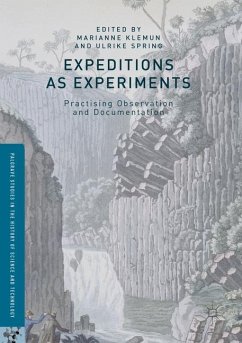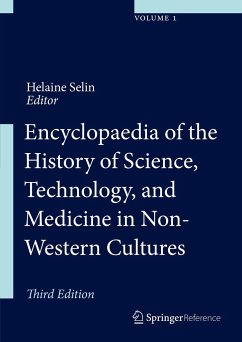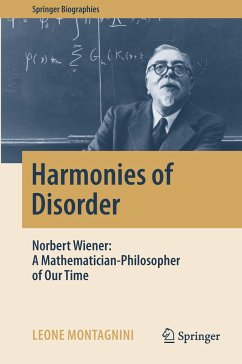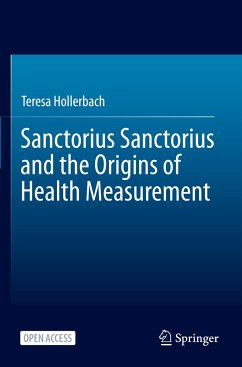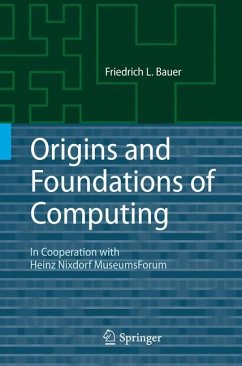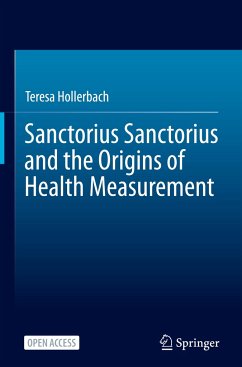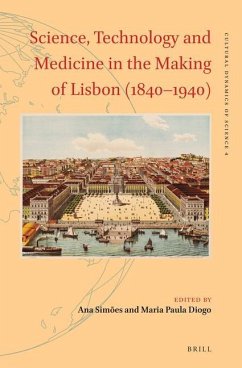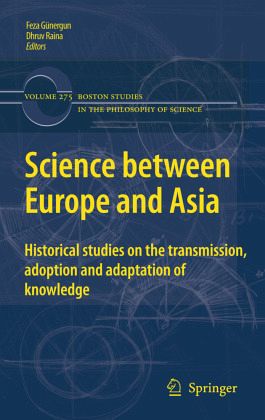
Science between Europe and Asia
Historical Studies on the Transmission, Adoption and Adaptation of Knowledge
Herausgegeben: Günergun, Feza; Raina, Dhruv

PAYBACK Punkte
57 °P sammeln!
This book explores the various historical and cultural aspects of scientific, medical and technical exchanges that occurred between central Europe and Asia. A number of papers investigate the printing, gunpowder, guncasting, shipbuilding, metallurgical and drilling technologies while others deal with mapping techniques, the adoption of written calculation and mechanical clocks as well as the use of medical techniques such as pulse taking and electrotherapy. While human mobility played a significant role in the exchange of knowledge, translating European books into local languages helped the in...
This book explores the various historical and cultural aspects of scientific, medical and technical exchanges that occurred between central Europe and Asia. A number of papers investigate the printing, gunpowder, guncasting, shipbuilding, metallurgical and drilling technologies while others deal with mapping techniques, the adoption of written calculation and mechanical clocks as well as the use of medical techniques such as pulse taking and electrotherapy. While human mobility played a significant role in the exchange of knowledge, translating European books into local languages helped the introduction of new knowledge in mathematical, physical and natural sciences from central Europe to its periphery and to the Middle East and Asian cultures. The book argues that the process of transmission of knowledge whether theoretical or practical was not a simple and one-way process from the donor to the receiver as it is often admitted, but a multi-dimensional and complex cultural process of selection and transformation where ancient scientific and local traditions and elements. The book explores the issue from a different geopolitical perspective, namely not focusing on a singular recipient and several points of distribution, namely the metropolitan centres of science, medicine, and technology, but on regions that are both recipients and distributors and provides new perspectives based on newly investigated material for historical studies on the cross scientific exchanges between different parts of the world.



